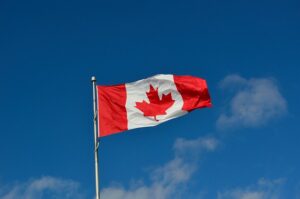For those seeking long-term residency or citizenship, Canada provides multiple pathways through work, study, or investment.
This article discusses exactly how to become an expat in Canada.
If you are looking to invest as an expat or high-net-worth individual, which is what I specialize in, you can email me (advice@adamfayed.com) or WhatsApp (+44-7393-450-837).
This includes if you are looking for a second opinion or alternative investments.
Some of the facts might change from the time of writing, and nothing written here is formal advice.
Canada actively recruits skilled workers through programs like Express Entry and Provincial Nominee Programs (PNP).
For expats willing to navigate the financial challenges, Canada offers a stable and prosperous environment for personal and professional growth.
Canadian Immigration Explained: How to become an expat in Canada
Canada is one of the most expat-friendly countries due to its clear and structured immigration system.
The government actively encourages skilled workers, entrepreneurs, and students to move to Canada through various programs that provide a pathway to permanent residency (PR) and eventually citizenship.
Skilled Worker Programs
Expats with work experience in in-demand occupations can apply for permanent residency under Canada’s Express Entry system, which is the fastest and most popular immigration pathway.
Express Entry uses a points-based system (Comprehensive Ranking System – CRS) to assess applicants based on:
- Age
- Education
- Work experience
- Language proficiency (English and/or French)
- Job offers (if applicable)
The three main Express Entry streams are:
- Federal Skilled Worker Program (FSWP) – For professionals with at least one year of work experience in a skilled occupation.
- Canadian Experience Class (CEC) – For those who already have Canadian work experience (e.g., on a temporary work visa).
- Federal Skilled Trades Program (FSTP) – For skilled trades workers in fields such as construction, electrical work, and mechanics.
To qualify, applicants must achieve a minimum CRS score (which fluctuates based on government targets) and may need to undergo an Educational Credential Assessment (ECA) to verify foreign degrees and certifications.
Successful candidates receive an Invitation to Apply (ITA) for permanent residency.
Provincial Nominee Programs (PNP)
Each Canadian province and territory operates its own Provincial Nominee Program (PNP) to attract expats with skills and experience that align with regional labor market needs.
Unlike the federal Express Entry system, PNPs allow provinces to select candidates who may not have the highest CRS scores but meet specific economic and demographic requirements.
Applying through a PNP can significantly increase an expat’s CRS score, providing a fast track to permanent residency (PR).
Ontario Immigrant Nominee Program (OINP)
Who it’s for: Skilled workers, IT professionals, healthcare workers, and entrepreneurs.
- Ontario has one of the largest PNP streams due to its strong economy and high labor demand.
- The Human Capital Priorities Stream invites Express Entry candidates in fields like IT, healthcare, and finance.
- The Employer Job Offer Stream is for skilled workers with a job offer from an Ontario employer.
- Ontario has an Entrepreneur Stream for expats looking to start or buy a business in the province.
British Columbia Provincial Nominee Program (BC PNP)
Who it’s for: Technology professionals, engineers, healthcare workers, and tradespeople.
- The BC Tech Pilot (now part of the Skills Immigration and Express Entry BC stream) targets IT workers in high-demand fields.
- The Skills Immigration Stream is for workers in healthcare, skilled trades, and hospitality.
- The Entrepreneur Immigration Stream supports foreign investors and business owners.
Alberta Advantage Immigration Program (AAIP) (formerly AINP)
Who it’s for: General skilled workers, healthcare professionals, tech workers, and tradespeople.
- Alberta’s Express Entry Stream selects candidates with work experience in high-demand industries (oil and gas, healthcare, IT, agriculture).
- The Alberta Opportunity Stream allows expats already working in Alberta to apply for PR.
- The Rural Renewal Stream encourages settlement in smaller communities experiencing labor shortages.
Saskatchewan Immigrant Nominee Program (SINP)
Who it’s for: Skilled workers, farmers, and tradespeople.
- Saskatchewan’s Occupation In-Demand Stream does not require a job offer, making it an attractive option for expats.
- The Saskatchewan Express Entry Stream invites candidates with experience in the province’s priority occupations.
- The Entrepreneur and Farm Owner Stream supports business owners and agricultural entrepreneurs.
Manitoba Provincial Nominee Program (MPNP)
Who it’s for: Expats with work experience in Manitoba, skilled trades, and international students.
- The Skilled Worker in Manitoba Stream is open to expats already working in the province.
- The Skilled Worker Overseas Stream allows applicants with ties to Manitoba (relatives, past education, or work experience) to apply for PR.
- The International Education Stream is designed for international students graduating from Manitoba institutions.
Nova Scotia Nominee Program (NSNP)
Who it’s for: Healthcare professionals, IT specialists, and skilled workers.
- The Nova Scotia Demand: Express Entry Stream targets high-demand occupations, such as nursing and software development.
- The Nova Scotia Experience: Express Entry Stream requires one year of work experience in the province.
- The Physician Stream is for doctors looking to work in Nova Scotia.
New Brunswick Provincial Nominee Program (NBPNP)
Who it’s for: French-speaking expats, skilled workers, and entrepreneurs.
- The New Brunswick Express Entry Stream is open to candidates with work experience in in-demand occupations.
- The Skilled Worker Stream is for applicants with a job offer from a New Brunswick employer.
- The Atlantic Immigration Program (AIP) is another pathway that connects foreign workers to employers in New Brunswick.
Prince Edward Island Provincial Nominee Program (PEI PNP)
Who it’s for: Skilled workers, entrepreneurs, and graduates.
- The PEI Express Entry Stream is for candidates already in the Express Entry pool.
- The Labour Impact Stream targets expats in hospitality, healthcare, and trades.
- The Business Impact Stream requires investment in a PEI business and a commitment to actively managing it.
Newfoundland and Labrador Provincial Nominee Program (NLPNP)
Who it’s for: Healthcare workers, IT professionals, and skilled trades.
- The NL Express Entry Skilled Worker Stream invites candidates with job offers in high-demand fields.
- The Priority Skills NL Stream is for highly educated professionals in tech and healthcare.
- The International Entrepreneur Stream supports business investors and entrepreneurs.
Northwest Territories Nominee Program (NTNP)
Who it’s for: Skilled workers and entrepreneurs willing to work in the North.
- The Skilled Worker Stream requires a job offer from an employer in the Northwest Territories.
- The Business Stream is open to expats looking to start a business in the territory.
Yukon Nominee Program (YNP)
Who it’s for: Skilled workers, entrepreneurs, and tradespeople.
- The Skilled Worker and Critical Impact Worker Streams require a job offer from a Yukon employer.
- The Business Nominee Program is for entrepreneurs willing to invest in Yukon’s economy.
Nunavut – No PNP Program
Who it’s for: Currently, Nunavut does not have a Provincial Nominee Program. However, skilled workers can immigrate to Nunavut through the federal Express Entry system or employer-driven work permits.
FAQs
About how long for permanent residency in Canada for expats?

The Express Entry system is the fastest and most popular route for skilled workers, with processing times averaging six months for eligible candidates.
Expats can also apply through Provincial Nominee Programs (PNPs), which allow provinces to select candidates based on local labor needs.
Expats working or studying in Canada may qualify for PR through the Canadian Experience Class (CEC), while business owners can explore Entrepreneur and Investor Streams.
Many PR programs use a points-based system (Comprehensive Ranking System – CRS), where higher education, language skills, and work experience improve eligibility.
What are the best places to live in Canada as an expat?
The best city for an expat depends on job opportunities, cost of living, climate, and lifestyle preferences.
- Toronto – Canada’s largest city, offering diverse job opportunities in finance, tech, and healthcare. Expensive but highly multicultural.
- Vancouver – Known for mild weather, scenic nature, and strong job growth in IT, film, and tourism. Expensive housing is a drawback.
- Montreal – More affordable than Toronto and Vancouver, with a strong arts, gaming, and AI industry. French is required for many jobs.
- Calgary – High salaries and lower cost of living compared to major cities. Strong in oil, engineering, and tech industries.
- Ottawa – Canada’s capital, offering government jobs, top universities, and a lower cost of living.
- Halifax, Winnipeg, and Edmonton – More affordable alternatives with growing industries in healthcare, education, and technology.
Each city has different immigration streams under Provincial Nominee Programs (PNPs), which can help expats secure permanent residency faster.
Do expats pay taxes in Canada?
Yes. Canada taxes residents on worldwide income, meaning if an expat becomes a Canadian tax resident, they must report and pay taxes on income earned both in Canada and abroad.
However, Canada has tax treaties with many countries to avoid double taxation. Expats can claim foreign tax credits if they have already paid tax on foreign income.
Those who do not establish tax residency in Canada (e.g., short-term workers or students) are only taxed on Canadian-sourced income.
Is Canada Good for Expats?
Canada offers one of the best immigration systems, a strong economy, and a high standard of living, making it a top destination for expats.
Permanent residency pathways are well-structured, and multiculturalism ensures that foreigners feel welcome.
However, high living costs, cold weather, and professional credential challenges can be barriers for some expats. Careful financial planning and job market research are essential before moving.
For expats seeking long-term opportunities, career growth, and a stable country to live in, Canada remains one of the best destinations in the world. For more guidance, it is recommended to seek an expat financial advisor.
Pained by financial indecision?

Adam is an internationally recognised author on financial matters with over 830million answer views on Quora, a widely sold book on Amazon, and a contributor on Forbes.



